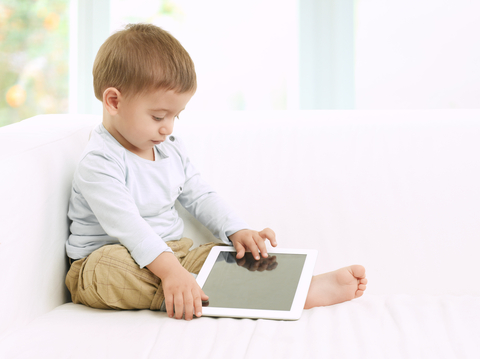REDEMPTION MEDIA BLOG
Recent Posts
- Playing it safe: road safety
- UK Foodbank App Launched
- 2014 Tech Predictions
- Foodbank App: national rollout begins!
- Hack-A-Loo and other stories
Archives
- July 2014
- March 2014
- January 2014
- December 2013
- August 2013
- June 2013
- March 2013
- January 2013
- December 2012
Categories
Touchscreen Generation
In our last blog, we looked at how technology is ‘evolving’ . Whether we like that word or not, we would all agree that there has been a technology revolution over the last two decades, driven in part by the massive potential of the internet.
Of course, at Redemption Media we are very excited about all things technological, but as a parent I can’t help wondering:
“What will be the impact of this technological revolution on my children?”
On the one hand, I love being able to answer a ‘how does it work mummy?’ question with an instant video on YouTube, but on the other hand it does concern me that my two-year-old takes for granted that she can watch Peppa Pig on my smartphone wherever and whenever she wants to.
A bit of screen time can be good, but no one wants their kids to be couch potatoes. Watching hours and hours of TV and playing non-stop video games are not going to produce healthy, creative, imaginative, socially adept grown-ups. In my former life as a secondary school teacher, I have seen the impact of a generation who are used to being entertained by fast-moving, high-quality TV and video games: teachers have to plan a fresh activity for each ten minute slot to keep students engaged. And on the day when the latest FIFA game was launched…well, they might as well have closed the school as there was only one topic of conversation in lessons.
And then there’s the problem of instant access for children to all sorts of damaging content online. This is clearly a huge issue for our times, and perhaps one that requires national and international legislation and enforcement (more of that another time!).
Yes, technology has its dangers. But a recent pilot project in a Welsh school (see the full BBC article here) showed that using tablet computers accelerated pupils’ learning and literacy at a dramatic rate. Kids love using gadgets, but more than this, computers allow a ‘personalised learning journey’ that is just not possible through traditional learning in a class of 30 children and one teacher. An interactive app or educational platform can guide pupils through different activities and tasks at their own rate, giving them feedback and assessment at all stages. No one else in the class gets to see when they get a question wrong but at the same time, progress can be recorded and shared with the teacher.
So where is the dividing line between technology that is dangerous to our kids, and technology that will help them fly?
I believe that the answer lies in interactivity. ‘Screen-time’ is damaging when in invites children to be passive comsumers, to sit in the same position for hours and stare blankly at the TV. I have heard that watching telly burns fewer calories than staring at a blank wall – because at least when staring at a wall, the brain uses energy in thought processes and imagination. Even internet activities such as social media and browsing are consumption-based processes requiring very little thought, imagination and creativity. Children who are constantly entertained by content that is provided for them are less likely to develop into creative, pro-active, imaginative and self-motivated adults.
But truly interactive technology is a different matter. Games and apps that require thought, reasoning, calculations, processing, planning etc. have the potential to train children in vital areas such as numeracy and literacy, problem solving and independent learning.
You can’t argue with results like the ones described in the BBC article. At Redemption Media we are excited about the potential for interactive software in education, and we believe there is an enormous potential market for projects of this type (our ‘Whizzy Kids’ interactive app for preschoolers has been downloaded over 600 000 times). We specialize in interactivity and have industry-leading experience in making interactive software for apps, websites, games and social media platforms. If you are interested in exploring the potential of your own idea, please get in touch.

